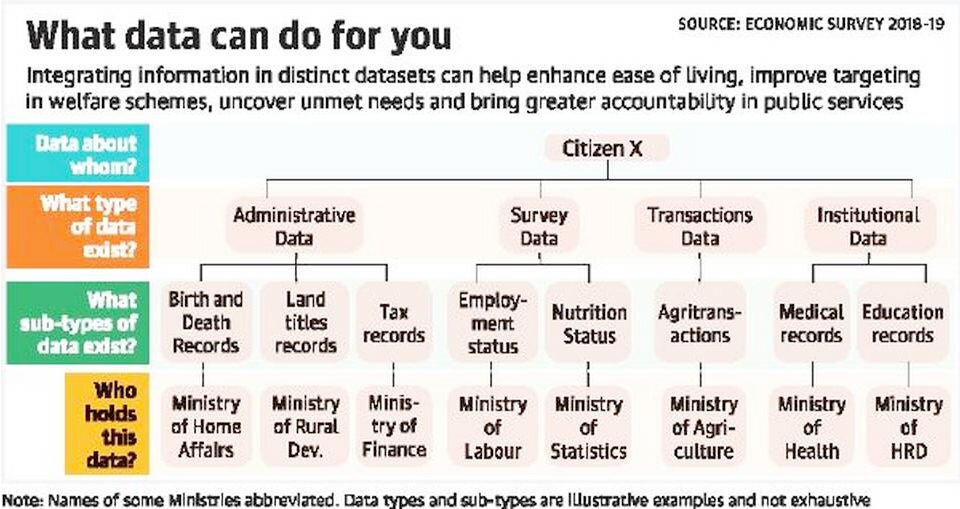Welfare Database of Citizens | 06 Jul 2019
The Economic Survey 2018-19 has recommended setting up of a central welfare database of citizens by merging different data maintained by separate ministries and departments.
- The principle behind the recommendation is that the most data generated by the people, of the people, should be used for the people.
- The government already held a rich repository of administrative, survey, institutional and transactions data about citizens, but these data are scattered across numerous government bodies.
- The government would be able to utilise the information embedded in the database for enhancing ease of living for citizens, enable truly evidence-based policy, improve targeting in welfare schemes, uncover unmet needs, integrate fragmented markets, bring greater accountability in public services and generate greater citizen participation in governance, etc.
- The datasets that can be merged include birth and death records, pensions, tax records, marriage records; survey data such as census data, national sample survey data; transactions data such as e-national agriculture market data, UPI data, institutional data and public hospital data on patients.
- It has been suggested that database be created as a public good within the legal framework of data privacy. Even, a part of the generated data can be monetised to ease the pressure on government finances. Access to a selected database can be provided to the private sector for a fee.
- Indian government is working on finalising the personal data protection policy.
